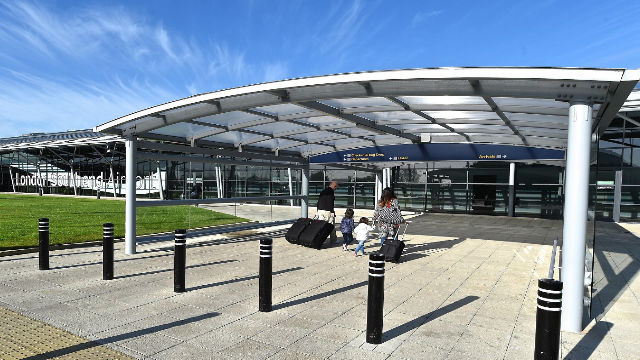The UK Climate Change Committee (CCC) has recommended that the UK government work to halt any airport expansions in the country and work to curb demand for air travel. In a progress report submitted to the UK Government today, the CCC says that the UK has a “lack of urgency” toward reducing emissions and its current zero emissions policy is too dependent on “nascent technology” and risks the country missing its 2050 target.
The report notes that aviation emissions continue to be impacted by the COVID-19 pandemic and are likely to have also been affected by the rising cost of living in 2022. Estimated aviation emissions in 2022 were 29 MtCO2e, which was up 95% from 2021, but still 25% below 2019 levels. The CC warns that the longer-term historical trend in aviation predicts rising demand for long-haul flights, which currently are only being “partly compensated” by improved efficiencies.
The UK’s Jet Zero Strategy, published in July 2022, expects passenger demand growth of 70% over 2018 levels by 2050, and expects advances in technology to compensate for that increase. These advances include aircraft engine efficiency improvements, the introduction of electric flight and the rapid uptake of sustainable aviation fuel (SAF). The CCC warns: “The Government does not have a policy framework in place to ensure that emissions reductions in the aviation sector occur if these technologies are not delivered on time and at sufficient scale."
The committee advises that the best way to reduce aviation CO2 and non-CO2 emissions is to manage demand. “The Government has a range of options to manage demand, such as digital technologies, addressing private flying and providing lower-cost domestic rail travel.”
The CCC recommends a halt to all airport expansion “until a UK-wide capacity management framework is in place to annually assess and, if required, control sector CO2 emissions and non-CO2 effects”.
In reaction to the CCC progress report, Transport & Environment UK says that “nothing seems to be progressing in Whitehall” and that the UK government has “dropped the ball on tackling aviation emissions”.
Matt Finch, Policy Manager at Transport and Environment UK, said: “The CCC’s verdict is clear and damning: the Government has dropped the ball on tackling aviation emissions. Last year's Jet Zero strategy was effectively a license to pollute: lots of fluffy talk, but scarce on policy details. The CCC has seen through the fluff and has called on the Government to up its game considerably.”
The Airport Operators Association (AOA) takes a very different view. “The AOA disagrees with the CCC’s recommendation on airport expansion,” said AOA chief executive Karen Dee. “The aviation industry and the UK Government both have a plan in place for UK aviation to achieve net-zero by 2050 while still accommodating growth in air travel in that same time frame. Banning airport expansion now, in the way suggested would damage the UK’s economic future and deter investment from the UK.”
Dee called on the government to focus on ways to policies and measures to enable change and the decarbonisation of the aviation industry rather than preventing people from flying.
“What is needed, rather than focusing on preventing people flying, is policies and measures which enable change: for example through modernising airspace, supporting and requiring the use of Sustainable Aviation Fuel, and supporting the development and deployment of hydrogen and electric flight,” she said. “By adopting this approach, we can deliver our net-zero ambitions while also ensuring people can continue to enjoy the many and varied benefits that aviation delivers.”
The CCC does call for the UK government to ensure the immediate adoption of the SAF Mandate, which has been delayed. “The process to implement the Government’s ambitious SAF mandate is delayed and dependent on an uncertain domestic and global feedstock supply. The Jet Zero Strategy sets the SAF mandate target at 10% SAF by 2030. The CCC’s Balanced Pathway assumes 2% SAF uptake by 2030; our Widespread Innovation Pathway assumes a 3% share in 2030. Government must build in contingency and risk management into the SAF mandate to prepare for the possibility of constrained domestic and global SAF supply throughout the 2020s and 2030s.”

